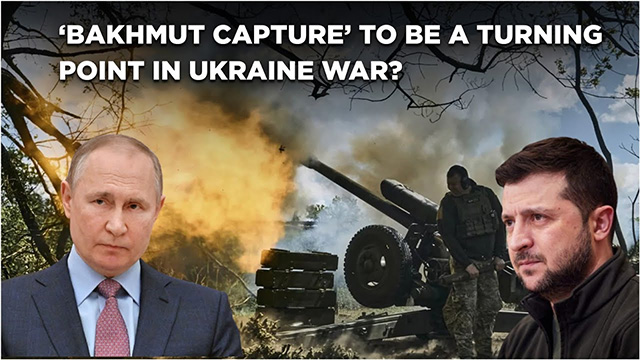
Meanwhile, in a series of showy incidents, Ukraine began hitting targets in Russia with US and British supplied weapons. There have been sporadic artillery and Himars missile attacks on Russian civilians in border towns; two drone attacks on the Kremlin; and British Storm Shadow cruise missile strikes on targets in Russia. In one particular instance last week, there has been a cross border incursion in the Belgorod region with US supplied vehicles and weapons. But none of these attacks can be deemed as “game changers,” writes M.K. Bhadrakumar, Indian Ambassador and prominent international observer.
While the US and the rest of NATO are feigning ignorance about these attacks, the key fact is that Ukraine gets targeting data that only NATO intelligence sources could provide. Thus, the decades-old red line dating back to Cold War has been breached — namely, that neither the US nor Russia would attack the other side’s territory directly or indirectly. (They held the guardrails even during the Afghan jihad in the 1980s.)
There is going to be consequences.
The first sign of it came with the news that nuclear weapons are already being deployed in Belarus and Defence Minister Sergey Shoigu was in Minsk to sign the necessary agreement detailing the logistics of deployment. Biden told reporters on Friday after returning from Japan that his reaction to the Russian deployment is “extremely negative.”
But a flashpoint can always arise. The upcoming NATO exercise codenamed Air Defender 23 (June 12-23) will be the most significant military exercise ever carried out over the European skies and the most extensive deployment exercise of air forces in the history of the western alliance — involving 25 NATO countries, 10,000 military personnel and approximately 220 aircraft.
To quote Larry Johnson, well-known American blogger and former analyst at the CIA, “a training operation of this size and scale against the backdrop of heightened tensions in the region is akin to lighting a match in a gasoline storage tank.”
That said, at the tactical level, Russian military is also positioning itself for further operations to complete the liberation of Donbass, after having gained control of Bakhmut, which is a major communication hub through which all Ukrainian logistics passed along the Donetsk arc up to Seversk so far.
The “known unknown” is how the 2024 US election campaign will affect the trajectory of the war. Biden’s shift on F-16 can be seen as a knee-jerk reaction. Even Gen. Mark Milley, chairman, Joint Chiefs of Staff admits that F-16 isn’t a “magic weapon.”
Meanwhile, Russia continues to probe the US intentions.
In an interview with the prestigious ‘International Affairs’ magazine, Russian Deputy Foreign Affairs Minister Sergey Ryabkov said on Friday that “The US ruling elite has consolidated itself to a great extent on an anti-Russian basis, regardless of party affiliation. In my opinion, the situation is turning into a force majeure.”
However, Ryabkov who is the highest ranking “point person” for relations with the US at the foreign ministry, also added, “No matter how things turn out, we are willing to maintain dialogue with whoever comes to power (in the US), stays in power.”
Therefore, Ukraine relinquishing the accession to NATO and the EU and returning to neutral non-aligned status will remain one of the key conditions of a successful peace process in Ukraine.
The big question is how far the NATO will go at its forthcoming summit in July in Vilnius; or, would this mean Ukraine’s full membership or something else? The likelihood of any big decisions in Vilnius can, perhaps, be discounted, concludes M.K. Bhadrakumar.
read more in our Telegram-channel https://t.me/The_International_Affairs

 11:08 29.05.2023 •
11:08 29.05.2023 •






















